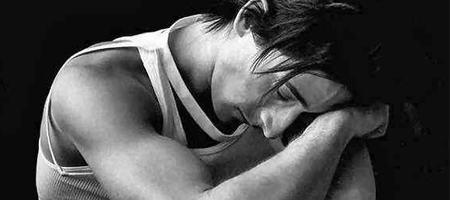Post by Dimitri Mikhail Zolnerowich on Jul 25, 2011 10:33:04 GMT 1
"Faeries." Dimitri looked at the class before him, a mixture of higher years following advanced defense. He could tell they were going to laugh at what he was going to say - and that was exactly the point. This was no laughing matter. "I assume you've all heard of faeries?" he asked again, allowing a brief silence to fall before turning to the black board. Usually when treating magical creatures in class he had a specimen or at least a schematic drawing of them in chalk - not this time. It was just a list, this time, and some muggle images of what they believed to be faeries, or fairies, or whatever they called them.
"Most of you will be familiar with them from so-called fairy tales or folklore, especially Irish mythology," he explained, tapping the black board with his wand to enlarge the script so all could read it. It was a list of characteristics.
"There is a difference to the brownies and pixies we're familiar with and actual faeries. We can't be sure about what they look like, for example. Even though faeries are often depicted as young, sometimes winged, humanoids of small stature, they originally were depicted much differently: taller and in some way radiant. The diminutive faeries we are familiar with have been recorded for centuries and occur alongside the human-sized ones. In short, really, they seem to be able to assume any size and perhaps their small innocent image is magically assumed rather than constant. The difficulty is that most of what we know comes from folklore, a field in which it is notoriously difficult to distinguish fact from fiction, so their origins and natures remain vastly unclear."
Putting down his wand, he glanced at his students, wondering if they still took him seriously. After all - it were 'only faeries' they were talking about. "We cannot even be sure if faeries are actually living things, as some sources document them as dead or undead beings, some even as some form of demon or angel or something in between, making them completely independent from any earthly species. Muggle folklorists suggest that their actual origin lies in a conquered probably mythical race living in hiding, or in religious beliefs that lost ground as more and more people were converted to Christianity, such as in the Irish tales of the Tuatha Dé Danann. Sometimes there are even sources that tell of faeries stealing human children, making them faeries in the process, or leaving a changeling child instead - as documented in the 1889 poem 'The Stolen Child' by William Butler Yeats." Dimitri looked into the class again. "I admit distilling the truth from such inaccurate and obscure sources is very tricky, even with more reliable sources such as Reverend Robert Kirk's 'The Secret Commonwealth of Elves, Fauns and Fairies' dated 1691."
Dim smiled a little. "You might think all this information does not tell us much, but it does tell us one very important thing - faeries are not something to joke about. If faeries are not alive - then how to kill them? If faeries are something out of this world, do you think our earth-bound spells and charms can really repel them? They might be a people in hiding, I don't know," he admitted, "but it is not likely that they are 'hiding' because they fear us, my personal belief is that they do not care. If compiling all information from sources together, it seems most likely that faeries are some sort of immortal, timeless race and that mortality and death is but a joke to them, hence why their 'misschief' is often so dangerous to us."
Turning towards the blackboard again, he tapped at the second point, the one under 'obscurity' (the point he had just addressed). It read 'dangerous'.
"I would not be teaching you a class on faeries if you needn't protect yourself against them. Although muggles do not generally believe in fairy tales anymore, there is consistent proof from their older sources that faeries are a cruel folk. Much of the muggle folklore revolves around protection from their malice and avoiding places or even people that the faery-kind have claimed as theirs." Clearing his throat, he turned to the black board again.
"There are, however, a few things we do know." Pointing them out on the board, Dimitri read them out. "Although they can confuse you with their words and riddles, faeries cannot lie. Also, they hate being told 'thank you', which they see as a sign of forgetting the good deed done. They are elementals, meaning they control the four known elements, yet it is told they have a strange fear or iron." He looked around the classroom. "There are tons of other documented things that are said to repel Faeries - can any of you name one?"
[Will give your House ten points if you can lol :3]
"Most of you will be familiar with them from so-called fairy tales or folklore, especially Irish mythology," he explained, tapping the black board with his wand to enlarge the script so all could read it. It was a list of characteristics.
"There is a difference to the brownies and pixies we're familiar with and actual faeries. We can't be sure about what they look like, for example. Even though faeries are often depicted as young, sometimes winged, humanoids of small stature, they originally were depicted much differently: taller and in some way radiant. The diminutive faeries we are familiar with have been recorded for centuries and occur alongside the human-sized ones. In short, really, they seem to be able to assume any size and perhaps their small innocent image is magically assumed rather than constant. The difficulty is that most of what we know comes from folklore, a field in which it is notoriously difficult to distinguish fact from fiction, so their origins and natures remain vastly unclear."
Putting down his wand, he glanced at his students, wondering if they still took him seriously. After all - it were 'only faeries' they were talking about. "We cannot even be sure if faeries are actually living things, as some sources document them as dead or undead beings, some even as some form of demon or angel or something in between, making them completely independent from any earthly species. Muggle folklorists suggest that their actual origin lies in a conquered probably mythical race living in hiding, or in religious beliefs that lost ground as more and more people were converted to Christianity, such as in the Irish tales of the Tuatha Dé Danann. Sometimes there are even sources that tell of faeries stealing human children, making them faeries in the process, or leaving a changeling child instead - as documented in the 1889 poem 'The Stolen Child' by William Butler Yeats." Dimitri looked into the class again. "I admit distilling the truth from such inaccurate and obscure sources is very tricky, even with more reliable sources such as Reverend Robert Kirk's 'The Secret Commonwealth of Elves, Fauns and Fairies' dated 1691."
Dim smiled a little. "You might think all this information does not tell us much, but it does tell us one very important thing - faeries are not something to joke about. If faeries are not alive - then how to kill them? If faeries are something out of this world, do you think our earth-bound spells and charms can really repel them? They might be a people in hiding, I don't know," he admitted, "but it is not likely that they are 'hiding' because they fear us, my personal belief is that they do not care. If compiling all information from sources together, it seems most likely that faeries are some sort of immortal, timeless race and that mortality and death is but a joke to them, hence why their 'misschief' is often so dangerous to us."
Turning towards the blackboard again, he tapped at the second point, the one under 'obscurity' (the point he had just addressed). It read 'dangerous'.
"I would not be teaching you a class on faeries if you needn't protect yourself against them. Although muggles do not generally believe in fairy tales anymore, there is consistent proof from their older sources that faeries are a cruel folk. Much of the muggle folklore revolves around protection from their malice and avoiding places or even people that the faery-kind have claimed as theirs." Clearing his throat, he turned to the black board again.
"There are, however, a few things we do know." Pointing them out on the board, Dimitri read them out. "Although they can confuse you with their words and riddles, faeries cannot lie. Also, they hate being told 'thank you', which they see as a sign of forgetting the good deed done. They are elementals, meaning they control the four known elements, yet it is told they have a strange fear or iron." He looked around the classroom. "There are tons of other documented things that are said to repel Faeries - can any of you name one?"
[Will give your House ten points if you can lol :3]



